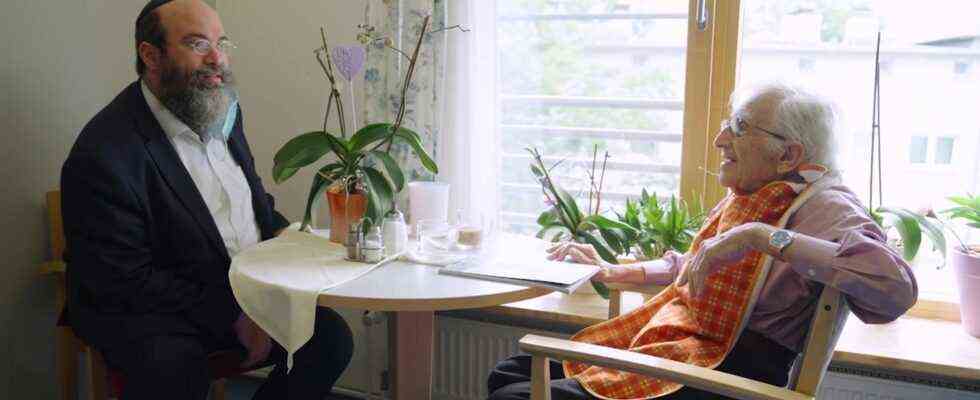#in the middle
Status: 07/20/2021 5:32 p.m.
They survived the concentration camps and the war. In the middle of Frankfurt some Shoah survivors found a home in a Jewish senior citizen center. Many no longer want to talk about the horror they experienced.
He is 101 years old, survived six years of camp and the death march at the end of the war. Siegmund Freund doesn’t want to talk to us about time. “You know what that is,” he says, pointing to the tattooed number on his left forearm.
Siegmund Freund no longer likes to talk about the war.
The social worker at the center also knows this not wanting to talk from home. Sara Majerczik is the daughter of Shoah survivors and has been here for years. The father fled the ghetto, the mother survived Buchenwald. The father later reported a lot about this horrific time, the mother never. “I think there are a lot of things that they never tell. Even when they tell, they tell a very small part of it. And what they don’t want to tell is probably not a bad repression mechanism.”
# in the middle – Jewish life in a retirement home
Topics of the day 10:15 p.m., July 20, 2021
In her work with the elderly, she can only imagine a Jewish home. In another German retirement home she would probably have met perpetrators. And she probably couldn’t have endured that, she says.
The senior citizen center is located in the middle of Frankfurt, developed from a Jewish hospital. After the war, the small synagogue attached to it was the only one that had survived the Nazi regime in Frankfurt.
Ali Halim should stay – thought the seniors. He then postponed his retirement.
A supervisor came from Afghanistan as a refugee
The old people’s center has become a home for almost 170 old people, many of whom have lost their homes.
But Ali Halim also managed to come back here as a supervisor after years of fleeing. Halim comes from Afghanistan and studied in Moscow as a refugee. So he can speak Russian with many of the old Jews who came to Germany from the former USSR. When he was due to retire last year, the residents wrote to the management that Halim could please stay a few more years. And so the devout Muslim has extended, goes to the doctor with his protégés and helps everywhere.
For him there is no religion in the first place, says the 66-year-old: “For me people are in the first place. I work with people. This belief is a connection with God for everyone.”
Rabbi Shlomo Raskin wants to honor the elderly.
Rebuild faith in the world
Rabbi Shlomo Raskin also looks after the Jewish believers in the elderly center. He holds the services in the synagogue on Shabbat and the Jewish holidays. And he also buries the dead in the city’s Jewish cemetery. He wants to honor the old people, he says. Many would have lost hope in the world. He wants to try to rebuild it a little. Because actually the will to live is very strong in them. And so on Friday a small group comes together in the synagogue, separated into men and women. Raskin brought his two sons with him to make the vocals sound a bit fuller.
“I see in the eyes of old people the past that has been lost and that is trying to be rebuilt to some extent,” he says. “Not always with success”.
Ivett Lendvai survived Auschwitz.
There are fewer and fewer contemporary witnesses
Ivett Lendvai talks about her time in the camps. She lives in her own apartment in the senior citizens’ center, attends school classes regularly and also reports on Auschwitz. How little the survivors had in common with normal people when they were liberated, they were only skin and bones. The 86-year-old says that contemporary witnesses like her say that is important. She wants to report as long as she can somehow healthily. Every day there are fewer who can do that.

